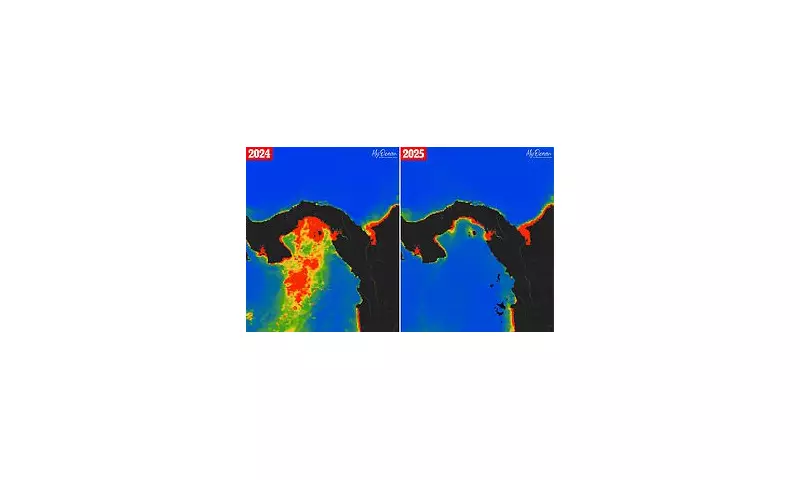
A silent catastrophe is unfolding deep within the Atlantic Ocean, where a vital circulatory system that sustains life on our planet is beginning to fail. Scientists are issuing their most severe warning yet as new data reveals the alarming shutdown of a process fundamental to Earth's climate stability.
The Atlantic Meridional Overturning Circulation (AMOC), often described as the ocean's 'conveyor belt', is responsible for transporting warm water from the tropics towards the Arctic and pulling colder, nutrient-rich waters back toward the equator. This massive circulation pattern regulates global weather, stabilises climates, and drives the essential mixing of ocean nutrients.
The Heartbeat of Our Planet Is Failing
Research indicates this critical system is now operating at its weakest point in over a millennium. The cause? Accelerating ice melt from Greenland and the Arctic, pouring unprecedented amounts of freshwater into the North Atlantic. This freshwater acts like a lid, preventing the dense saltwater from sinking—the very process that drives the entire circulation system.
Dr. Tim Smythe, lead oceanographer at the National Oceanography Centre, states: "We're observing changes that climate models predicted wouldn't occur until much later this century. The pace of this slowdown is terrifying—it's like watching the heartbeat of our planet gradually flatline."
Implications for Global Climate Systems
The consequences of a full AMOC collapse would be nothing short of catastrophic:
- Drastic cooling across Western Europe, particularly affecting the UK and Scandinavia
- Disruption of monsoon patterns that billions depend on for agriculture
- Accelerated sea-level rise along eastern North America
- Collapse of marine ecosystems that rely on nutrient upwelling
- Extreme weather events becoming more frequent and intense
The nutrient-rich upwelling caused by AMOC serves as the foundation of the marine food web. Its failure would ripple through entire ocean ecosystems, potentially causing fisheries to collapse and threatening food security for coastal communities worldwide.
A Tipping Point Approaches
Climate scientists have long warned about tipping points—thresholds beyond which changes become irreversible. The AMOC appears to be approaching such a point. While complete collapse might still be decades away, the current trajectory suggests we're moving toward it faster than anticipated.
Professor Sarah Chen, climate scientist at the University of East Anglia, explains: "This isn't a distant future scenario anymore. We're seeing the warning signs right now. The time for action was yesterday, but today is the next best thing we have."
The research underscores the urgent need for global cooperation to reduce greenhouse gas emissions. While the situation appears dire, scientists emphasise that preventing complete collapse remains possible through immediate and substantial climate action.





